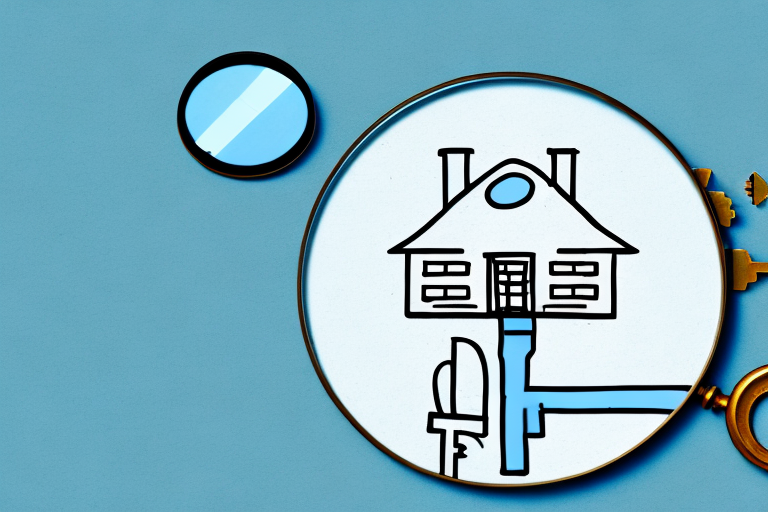Are you planning to buy or sell a property in Melbourne? If so, one of the key professionals you will need to engage with is a conveyancer. A conveyancer plays a crucial role in property transactions, ensuring that the legal aspects of the process are handled smoothly. In this article, we will explore the important factors to consider when looking for a trusted conveyancer in Melbourne.
Understanding the Role of a Conveyancer
Buying or selling a property in Melbourne involves hiring a melbourne conveyancers that ensures a smooth and legally sound transfer of ownership. Understanding the key stages of this process can help you navigate through it with confidence and ease.
The Importance of Conveyancing in Property Transactions
Conveyancing is an essential aspect of any property transaction. It involves the transfer of legal ownership from the seller to the buyer, ensuring that all necessary legal requirements are met. Without proper conveyancing, you risk facing costly legal issues down the line.
When it comes to property transactions, a conveyancer acts as a crucial intermediary between the buyer and the seller. They play a pivotal role in overseeing the legal transfer of property ownership and ensuring that all parties involved comply with the relevant laws and regulations. By entrusting a skilled conveyancer with your property transaction, you can navigate the complex legal landscape with confidence.

Key Responsibilities of a Conveyancer
A conveyancer is responsible for a wide range of tasks throughout the property transaction process. They handle important legal documents, conduct searches, negotiate terms, and facilitate the settlement of the property. Their role is to protect your interests and ensure a smooth transfer of ownership.
Furthermore, a conveyancer serves as a valuable source of guidance and expertise during the property transaction. They can provide insights on property laws, offer advice on potential risks, and help you make informed decisions every step of the way. By leveraging their knowledge and experience, you can streamline the conveyancing process and minimize the likelihood of encountering legal complications. Click here to learn more about potential risks,
Essential Qualities of a Trusted Conveyancer
When it comes to selecting a conveyancer to handle your property transactions, there are several essential qualities that you should consider beyond just qualifications and experience. While these are crucial factors, diving deeper into the conveyancer’s approach and values can provide you with a more comprehensive understanding of their suitability for your needs.
One additional quality to look for in a trusted conveyancer is their commitment to personalized service. A conveyancer who takes the time to understand your specific requirements and concerns can offer tailored solutions that meet your individual needs. This personalized approach can make the conveyancing process smoother and more reassuring for you as a client.
Professional Accreditation and Experience
When selecting a conveyancer, it is crucial to choose someone with the necessary qualifications and experience. Look for conveyancers who are licensed and registered with the relevant regulatory authorities. A conveyancer with a proven track record in handling property transactions in Melbourne will bring expertise and knowledge to the table.
Communication and Transparency
Effective communication is key when working with a conveyancer. A trusted professional will be transparent and keep you informed throughout the process. They should promptly respond to your queries and provide updates on the progress of the transaction. Clear and open communication will give you peace of mind and help set realistic expectations. Learn more about open communication at https://tsa.edu.au/the-importance-of-open-communication-in-the-workplace/
Attention to Detail and Efficiency
The conveyancing process involves handling numerous legal documents and performing intricate tasks. It is essential to choose a conveyancer who pays careful attention to detail and strives for efficiency. Their ability to meticulously review documents, identify potential issues, and complete tasks in a timely manner is crucial for a successful property transaction.
The Conveyancing Process in Melbourne
Pre-contractual Stage
The pre-contractual stage is a crucial phase where the groundwork for the property transaction is laid. Your experienced conveyancer will meticulously review the contract of sale, conduct thorough property searches, and provide you with valuable insights on any potential issues or risks associated with the property. This stage is essential for identifying any legal or financial red flags early on, allowing for informed decision-making.
Contractual Stage
Once the initial negotiations are complete and the contract of sale is signed, the contractual stage commences. Your dedicated conveyancer will diligently work to ensure that all legally required steps are taken to facilitate a seamless property transfer. This includes tasks such as transferring titles, arranging stamp duty payments, and lodging necessary documents with the relevant authorities. Attention to detail during this stage is paramount to avoid any delays or complications in the process.
Post-contractual Stage
Following the signing of the contract, the post-contractual stage is initiated. Your conveyancer will continue to guide you through the remaining steps of the conveyancing process, overseeing the intricate details of the property transaction. From coordinating with all parties involved to finalizing the transfer of ownership, your conveyancer plays a pivotal role in ensuring that all legal requirements are met and that the transaction proceeds smoothly.

Settlement Stage
The settlement stage marks the culmination of the conveyancing process, where ownership of the property is officially transferred. Your conveyancer will work tirelessly to coordinate with the buyer, seller, mortgage lender, and settlement agent to facilitate a successful settlement. Ensuring that all financial transactions are executed accurately and that all necessary documentation is in order, your conveyancer plays a crucial role in bringing the property transaction to a close.
How to Find a Reliable Conveyancer in Melbourne
Research and Recommendations
Start your search for a trusted conveyancer by conducting thorough research. Look for recommendations from friends, family, or real estate professionals who have had positive experiences with conveyancers in Melbourne. Online reviews and testimonials can also provide valuable insights into a conveyancer’s reputation and reliability.
Additionally, consider reaching out to local real estate agencies or legal firms for referrals to reputable conveyancers. These professionals often have a network of trusted contacts in the industry and can point you in the right direction based on your specific needs and requirements.
Comparing Quotes and Services
Obtain quotes from multiple conveyancers and compare their services. While it is essential to consider cost, remember that the cheapest option may not always be the best. Evaluate the range of services offered, their expertise in Melbourne property transactions, and their ability to meet your specific needs.
Furthermore, inquire about any additional services or benefits that conveyancers may offer, such as after-hours availability, online document tracking systems, or a dedicated point of contact for all your queries. These value-added services can enhance your overall experience and provide you with greater convenience throughout the conveyancing process.
Meeting Potential Conveyancers
Arrange meetings or phone calls with potential conveyancers to get a sense of their professionalism, expertise, and communication style. This will help you gauge whether they are the right fit for your requirements. Be prepared to ask questions about their experience, qualifications, fees, and the process they follow.
Moreover, consider requesting references from past clients to gain insight into the conveyancer’s track record and customer satisfaction levels. Speaking directly with individuals who have worked with the conveyancer can offer valuable perspectives on their reliability, efficiency, and overall performance.
By considering these factors and conducting due diligence, you can find a trusted conveyancer who will guide you through the property transaction process in Melbourne. Their expertise and attention to detail will ensure that the legal aspects of your property purchase or sale are handled with precision, giving you peace of mind.
Other resources about commercial law: An Overview of Commercial Law What Every Business Owner Should Know





